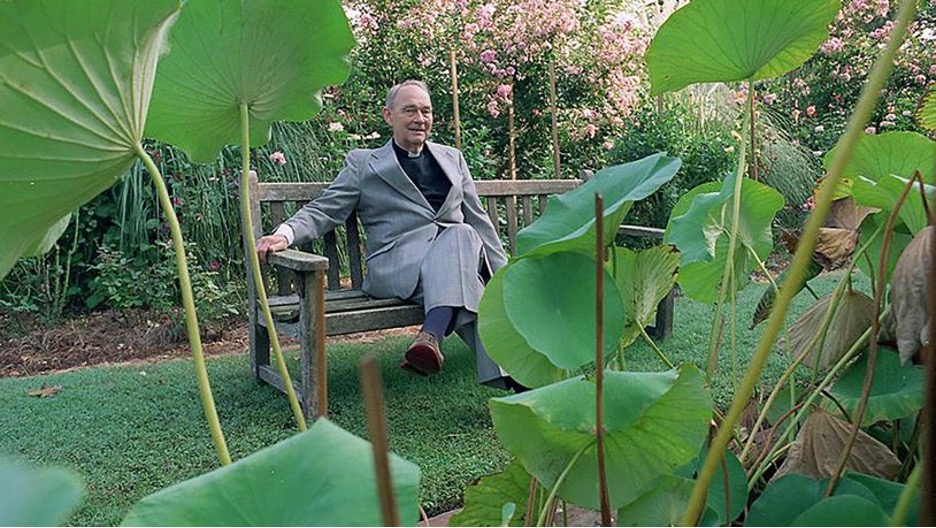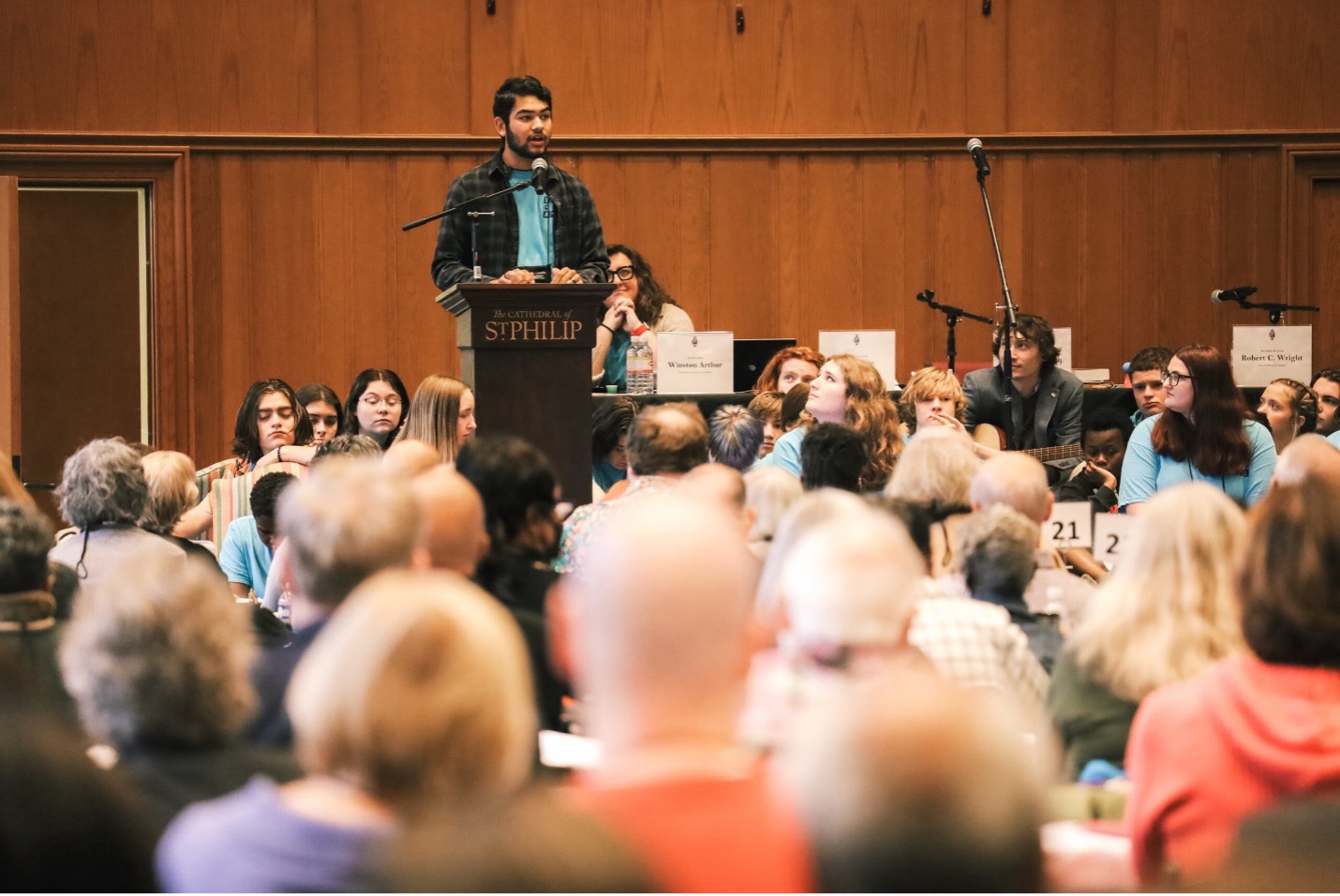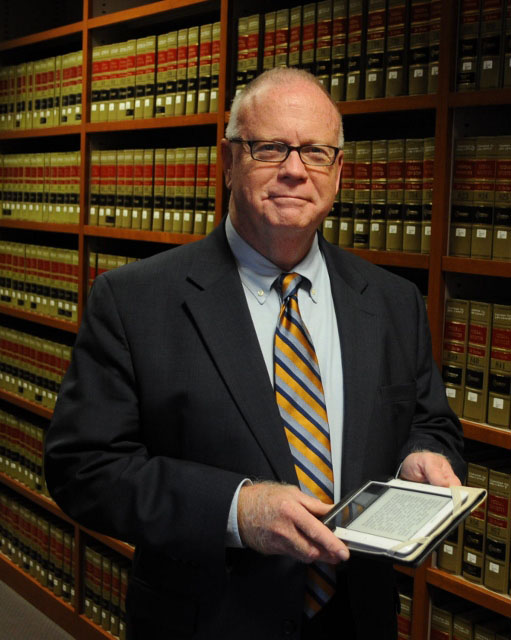The articles in this series on the commandments of Jesus in Matthew 25:31-40 have explored the needs and solutions to some of the biggest problems facing those living at the edges of society in the Episcopal Diocese of Atlanta. The “least of these” are our neighbors in the Diocese’s 75 1/2 counties in Middle and North Georgia.
The articles revealed shortcomings and strengths in our state and local governments’ responses to the needs of those living in poverty, suffering from food insecurity, lack of adequate healthcare, and disenfranchisement.
These deep dives into issues facing us as Christians and citizens also provide resources for those working to solve the most stubborn issues that Jesus says we must tackle.
One thing is clear from these explorations. Following Jesus’ commands to feed the hungry, give drink to the thirsty, welcome the stranger, clothe the naked, care for the sick, and visit the prisoners doesn’t require a degree, simply recognizing and responding to the needs of others.
You can donate to food banks, volunteer at soup kitchens, or even just share a meal with someone who is hungry.
Giving a drink to the thirsty can be as simple as giving a bottle of water to someone on a hot day, or it could involve supporting clean water initiatives in areas without access to safe drinking water.
Welcoming the stranger just requires being open and welcoming to all people. This could involve anything from welcoming a new neighbor to your community to supporting organizations that assist refugees.
Those in need of clothes can be served by donating clothing to organizations that distribute them to those in need or by participating in clothing drives in your community or school.
Spending time visiting those who are in hospitals or who are homebound is one way to care for the sick. Or you could also consider careers or volunteer opportunities in healthcare.
Many prisons and local jails allow volunteers to visit and provide companionship and moral support for those being held. There are also many organizations dedicated to helping rehabilitate and reintegrate those formerly incarcerated.
But Jesus’ teachings in Matthew 25 are about more than physical needs. They are about recognizing the inherent dignity in every person. When we serve others in need, Jesus says we are serving Him. So, we must simply strive to see Jesus in everyone we meet and serve them the best we can.
There are abundant examples of people who have devoted their lives to the Matthew imperatives. Here are the stories of four. None intended to become a role model, they just responded to the needs of others whom they encountered.
Deacon Lesley-Ann Drake

Lesly-Ann Drake (L) with former Path to Shine students Jessica Huerta, Jessica De Los Santos Avila, and their PTS volunteer mentor Christie Stevens – PTS photo
Lesley-Ann Drake was volunteering at a homeless shelter when she met a 19-year-old checking in with her four young children.
As Drake tells it,
“That meeting was as if God was hitting me over the head with a 2×4! I thought I was going to be a hospice chaplain, but God had other plans.”
At first, she planned to volunteer with someone else’s after-school program; but each time she visited one, she came away shaking her head, clear that the program was not what she wanted to do. There was no training, or the group was too big, or there was a shortage of adults, or the criteria to attend was too narrow.
After many visits and a couple of months in discernment, Drake created Path To Shine ®, Inc. with the clear goal of establishing a small group mentoring program for elementary school children. She wanted a program that would be sustainable for years to come while giving the children the attention they desperately needed. Over the years she collaborated with experts to create a model that can be adapted and planted in just about any location complete with training, curriculum, books, money for outings, and so much more.
As a vocational Deacon in the Episcopal Diocese of Atlanta, Drake said her charge is to bring the needs and concerns of the world into the church and “move parishioners out of their comfortable pews into the uncomfortable world” so they can do something (about the concerns of the world).
She networked through the Episcopal churches in Middle and North Georgia for over a decade to engage parishioners in the work of mentoring children. While some people only mentor for one year, many sign up to work with a kindergartener and stay with the same student until they leave to go on to middle school.
As the program grew, she expanded her reach to other denominations and other faiths, as well as people of no faith. “If someone is going to help a child, I was clear that I wasn’t going to get hung up on anyone’s faith background,” Drake says.
Drake is now retired from Path to Shine, but her legacy is rich. “People have told me that I changed their lives because they volunteered to mentor with Path To Shine. And young adults who are now in college and went through PTS as children have told me the same thing. It’s not me who changed lives – it’s God at work. It’s the love of Jesus demonstrated by a commitment to show up once a week for 2.5 hours to work with the same one or two children. It’s the Episcopal Church doing what it does best, and I’m thankful for everyone who has stepped out in faith, nervous perhaps because they are not trained educators, and they did the work anyway.” Path to Shine now operates in 16 locations.
Lay Minister Kate Kennedy

Kate Kennedy with Ansley School students – Ansley School photo
Kate Kennedy also didn’t know that a chance encounter would lead her to found The Boyce L. Ansley School, a tuition-free, private school in Atlanta for children of families experiencing homelessness.
Through her involvement at several local homeless-serving agencies, Kennedy had become acutely aware of the number of children without secure housing who were not enrolled in school. Day after day, young children would accompany their parents from agency to agency in search of shelter and food.
“I will never forget the day I was driving down Courtland Street,” Kennedy said, “and saw a young mother sitting on the curb on the side of the road with four school-aged children running around beside her. She looked tired and alone. As the mother of four children, I could not imagine the stress of living on the street with children—not knowing where you might sleep or eat that night or how you might find shoes and clothes for your growing children.”
In response to that brief encounter, Kennedy gathered a group of parishioners from St Luke’s Episcopal Church in Atlanta and began a one morning per week Parent’s Morning Out Program (Crossroads Kids). It offered reliable childcare to families served by Crossroads, a homeless-serving agency on the campus of St Luke’s. The program provided parents one morning a week to go to get a driver’s license or schedule a job interview without having to worry about who would care for their children.
But Crossroad Kids volunteers were dismayed that most of the children who came to the one day per week, morning program were school-aged. As Kennedy and the group began to look deeper into this situation, they found that many parents dealing with the trauma of homelessness find enrolling their children into school an overwhelming task. Providing paperwork and documentation, then moving from school to school caused some parents to settle for having their children simply take a break from formal education while making their situation more stable. In the process, these children were falling further and further behind.
After researching the feasibility of a school for homeless children in 2016, a small group began the bold task of creating a tuition-free privately funded school for children who have experienced homelessness.
The school is named for the group’s spark plug Boyce L. Ansley, a highly respected and beloved member and leader of St Luke’s who died in 2016. The school opened August 1, 2018, on the ground floor of the church located in the heart of Atlanta with a Pre-Kindergarten class. Within two years, the school had outgrown its space and moved across the street to a larger and more permanent home on Ralph McGill Blvd.
The parents and scholars of The Boyce L. Ansley School now thrive within this framework of structure and support. The innovative school continues to add an additional grade each year in a bold effort to help these children live beyond their circumstances and author a story of success.
Kennedy, who in 2011 completed a four-year course of study in Education for Ministry, managed the school’s growth for several years, then turned her attention to a long-held desire to increase her service within the church. After a yearlong ministry discernment process Kennedy in 2023 became St. Luke’s Minister for Community Discernment and Formation. In this video Kennedy and St. Luke’s Rector, The Rev. Winnie Varghese discuss Kennedy’s role.
The Rev. Austin Ford

The Rev. Austin Ford in the garden at Emmaus House – AJC file photo
Austin Ford was a patrician Southerner whose life’s trajectory could have led to privilege and ascent as a priest in the Episcopal Church. But Ford became increasingly troubled by the poverty that was still hidden from many Atlantans.
Ford, the rector of St. Bartholomew’s Episcopal Church, decided he must draw attention to the problem. So, in 1967 he moved into a run-down, two-story house in the poverty-stricken Peoplestown neighborhood.
The area was still seething following the Summerhill Riot, also known as the Atlanta Rebellion, which began September 6, 1966, triggered by the police shooting of an unarmed Black man named Harold Prather. More than a thousand people gathered in response to the shooting and to protest long-term local community problems including discriminatory policing, poor housing, inadequate public services, and the urban renewal policies that had disregarded the neighborhood including the recent construction of the Atlanta-Fulton County Stadium on the edge of Summerhill.
According to Ford’s 2018 obituary in The Atlanta Journal-Constitution, “He was a strange sight at first. The white man in his late 30s rode his bicycle through the predominantly Black community and knocked on doors to talk to residents about ways they could work together to improve the area.
Columbus Ward, a teenager at the time who went on to work with Ford said the patrician, but affable Ford soon became accepted in the neighborhood.
“He didn’t just drop in,” Ward told AJC reporter Shelia Poole. “He moved in. He became a neighbor. He made it known that this Southern white man had no problem fighting the system.” Fifty-six years later Ford’s efforts continue to be the guiding beacon for the leaders of Emmaus House, an ongoing ministry of the Episcopal Diocese of Atlanta.
Student Youth Leader Luke Netto

In his sermon to the 117th Annual Council Diocesan Youth Commission Chair, Luke Netto said “The young generation’s relationship with God and his church has never been more important.
And Netto who is a senior at Milton High School and plans to major in politics with minors in religion and music in college has taken a leadership role in making that relationship a reality.
Since becoming part of the Diocese’s Episcopal Youth Community in his sophomore year Netto has steadily taken on more responsibilities. This year, as chair of the Youth Commission he is leading an effort to reach out to local churches and build a stronger financial base for youth programs.
“The youth ministry is already growing in terms of numbers coming out from COVID, but also in the way we’re getting involved in our community. And as such, we are expecting to see our budget and our expenses grow just a little bit as we take on more duties and expand our ministry,” Netto said. “So as part of that, we’re trying to find some revenue sources so we can be supported by the diocese but also have our own kind of income stream.”
Netto said the Youth Commission’s student leaders are discussing ways to raise money beyond the sale of t-shirts and other merchandise.
“We are trying to turn our retreats into something that is both affordable and self-sustaining. So, we’re trying to use a very fiscally responsible way of dealing with youth ministry as we expand our outreach,” he said.
The student-led Youth Commission Netto chairs promotes youth engagement and ministry within the diocese. It plans and leads the Episcopal Youth Community of the Diocese of Atlanta. The Youth Commission provides input and ideas for youth formation and annual events including the Winter Retreat at Camp Mikel, Pride Eucharist, Hunger Walk, and Graduation Celebrations. It also provides youth leaders with connections to clergy, laypersons, and church leadership.
Netto said his involvement has also had a deeply spiritual facet.
“At our DYC Retreat in January, we had a discussion of how God is always the but statement when it comes to, you know, negative things in our lives. And so, you know, there is darkness and yet God is light, there is sadness and yet God is joy, things like that. And Bishop Wright came up Saturday night and we did a Q and A and a worship service. The Q and A is typically a special moment. I think that the bishop enjoys it a lot.
“And one of the things that we found at this past retreat is everyone in the group – there were about 70 to 75 kids able to join us from across the diocese – had this really open environment where there was a lot of spiritual connection. And I think more importantly, there was a personal connection with everyone there,” Netto recalled.
“One of the things we’ve been trying to do as a youth community is approach mental wellness in a very pastoral way; create conversations with each other where we can approach a difficult topic in a way that is spiritually healing while also being physically healing. And several youth opened up about their experiences with suicide, depression, and things like that. And over the course of the weekend, we had four students who approached Holle Tubbs, our youth missioner, and asked for help because they were struggling with things like suicidal thoughts. And they attributed those conversations to being the reason they came forward, which I just think is incredibly powerful,” Netto said.
These life stories, like the parables Jesus used to teach his disciples recorded in Matthew 25, point to larger truths.
Each of their lives reflect the key characteristics of Jesus’ parables.
Be Prepared
The Parable of the Ten Virgins teaches us to always be prepared for the return of Jesus. It emphasizes the importance of readiness and vigilance, as we do not know the day or hour of His return.
Use Your Gifts Wisely
The Parable of the Talents encourages us to use whatever gifts we have for God’s purposes. It teaches us to invest our lives wisely and productively, using our talents and abilities to serve God and others.
Show Compassion
The Parable of the Sheep and the Goats teaches us to show compassion and kindness to those in need. It reminds us that when we serve others, especially the least among us, we are serving Jesus Himself.
These and others seeking to follow these principles have found a life of purpose, fulfillment, and reward. But they didn’t do it alone and neither will you. You are welcome to join the journey along with 50,000+ followers of Jesus at any of The Episcopal Diocese of Atlanta’s 120 worshiping communities in middle and north Georgia.
Learn more about the Diocese and find a worshiping community where your faith can grow.

